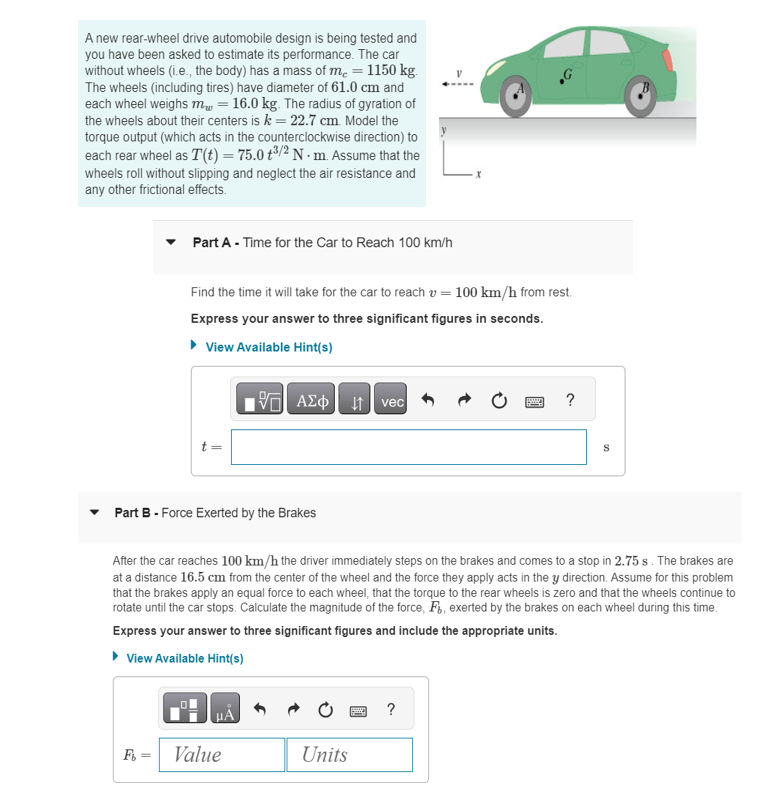Answered step by step
Verified Expert Solution
Question
1 Approved Answer
A new rear-wheel drive automobile design is being tested and you have been asked to estimate its performance. The car without wheels (i.e., the

A new rear-wheel drive automobile design is being tested and you have been asked to estimate its performance. The car without wheels (i.e., the body) has a mass of m = 1150 kg. The wheels (including tires) have diameter of 61.0 cm and each wheel weighs mw = 16.0 kg. The radius of gyration of the wheels about their centers is k = 22.7 cm. Model the torque output (which acts in the counterclockwise direction) to each rear wheel as T(t) = 75.0 /2 N. m. Assume that the wheels roll without slipping and neglect the air resistance and any other frictional effects. Part A - Time for the Car to Reach 100 km/h Find the time it will take for the car to reach v = 100 km/h from rest. Express your answer to three significant figures in seconds. View Available Hint(s) F = Part B - Force Exerted by the Brakes 15. A Value vec After the car reaches 100 km/h the driver immediately steps on the brakes and comes to a stop in 2.75 s. The brakes are at a distance 16.5 cm from the center of the wheel and the force they apply acts in the y direction. Assume for this problem that the brakes apply an equal force to each wheel, that the torque to the rear wheels is zero and that the wheels continue to rotate until the car stops. Calculate the magnitude of the force, F, exerted by the brakes on each wheel during this time. Express your answer to three significant figures and include the appropriate units. View Available Hint(s) Units B www. ? ? S
Step by Step Solution
★★★★★
3.56 Rating (167 Votes )
There are 3 Steps involved in it
Step: 1

Get Instant Access to Expert-Tailored Solutions
See step-by-step solutions with expert insights and AI powered tools for academic success
Step: 2

Step: 3

Ace Your Homework with AI
Get the answers you need in no time with our AI-driven, step-by-step assistance
Get Started


